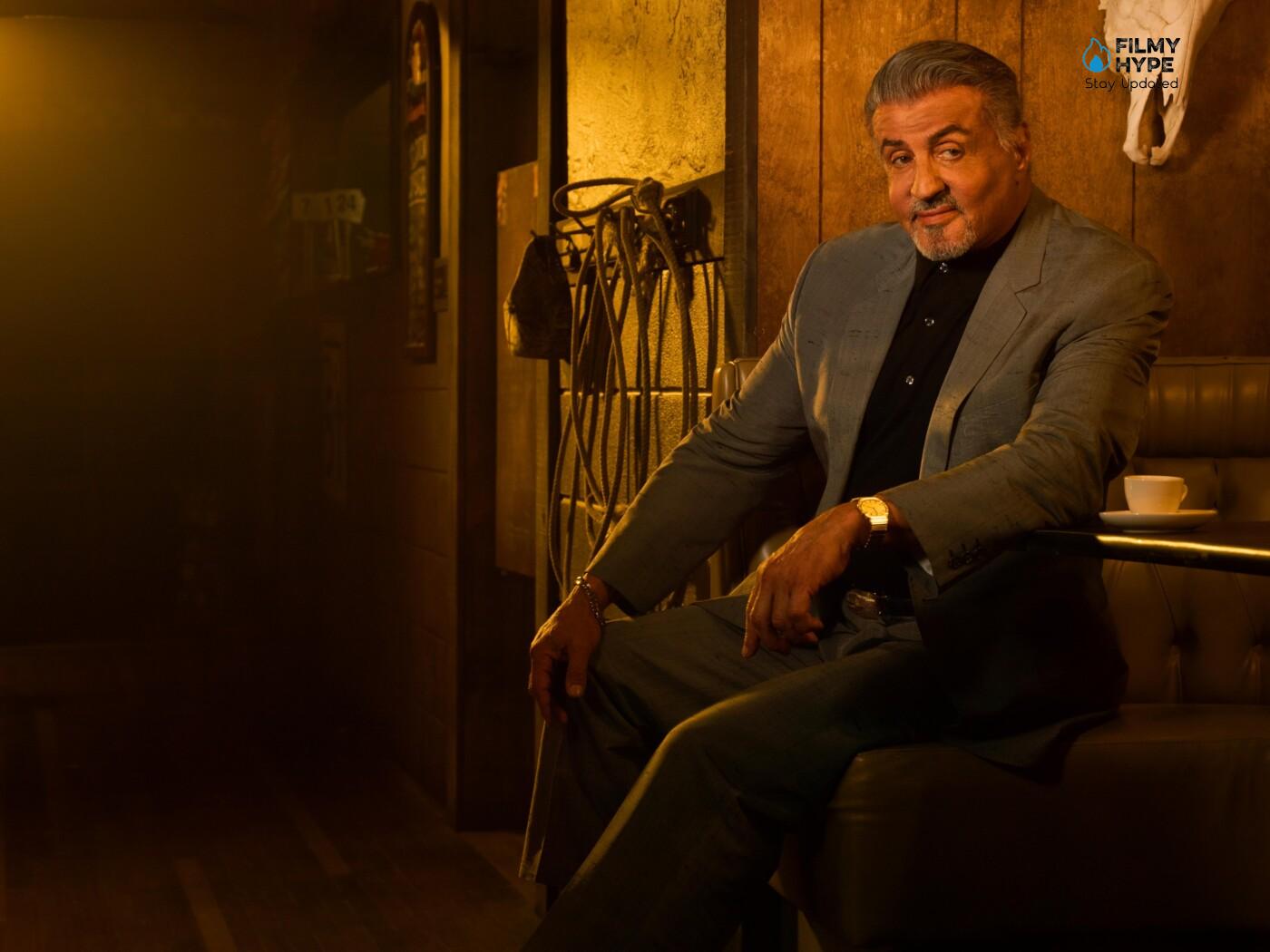Tulsa King: Why the Series Is So Successful! The 5 Ingredients of the Success
In America, it even beat the ratings of the House of the Dragon series Tulsa King became a hit. The iconic face of its leading actor stands out on all Paramount Plus advertisements and has now become one of the station’s symbols. We are talking, of course, of Tulsa King, a series that also, at the time of its small screen debut, seemed to stubbornly go against the grain, heading at full speed in the wrong direction. While superheroes and fantasy took the lion’s share, with the boom of The Witcher and The Sandman on Netflix, The Rings of Power on Amazon, and House of the Dragon on HBO, Tulsa King has bet on a bizarre match between crime and westerns. And we are not talking – mind you – of a noir à la True Detective, Luther, or Fargo, but of a light-hearted series full of irony, which seemed 30-40 years behind the times.

Tulsa King: Why the Series Is So Successful!
As if that weren’t enough, instead of relying on the new emerging talents of the television and film scene, the series has staked everything on an icon of the last generation, a now “out of fashion” character, who never appeared as a protagonist on the small screen: Sylvester Stallone. A seemingly crazy gamble, which confirms the great creative intuition of Taylor Sheridan, and the talent of screenwriter Terence Winter (who unfortunately will not return for the second season). Let’s try to discover the winning formula of the series, which has just concluded its first season on Paramount Plus (here is our review): here are the 5 ingredients of the success of Tulsa King, starring Sylvester Stallone.
1. Dwight Manfredi, A Character Tailored For Stallone
Whether it was an Italian-American boxer, a Vietnam veteran, a dad truck driver with a passion for arm wrestling, or a judge-dealer of a futuristic city, Sylvester Stallone has always embodied an icon of strength, tenacity, and determination. Mirror of Raegan’s America and its thousand contradictions, from a conventional hero he very often ended up turning into a rebel, ready to challenge the betrayals and about-faces of the powers that be. The world, however, has profoundly changed, and just putting a 76-year-old Sly in front of the cameras with yet another character like this would have been suicidal.
In directing The Expendables, Sly had chosen to focus rather on self-parody, realizing that, in contemporary America, there was no longer any place for that type of icon. For his first experience in the serial world, however, something even more radical and convincing was needed, without distorting Stallone’s consolidated actor identity. This is how Dwight “The General” Manfredi saw the light. According to Sylvester Stallone himself – who has long dreamed of playing the role of a gangster – one of the roles most closely resembles him: a dinosaur from another era, firmly anchored to old values and, as always, in crisis with your own family.
A proudly obsolete and unfashionable individual who clashes with a contemporaneity that he does not understand and does not intend to accept. In other words, the typical character of Sly, but expertly aged forty years, was cut off from the world for at least twenty-five due to prison and thrown into a completely new reality. The result? Simply terrific.
2. A Story of Redemption
However, there is a common thread that connects the Sylvester Stallone of yesterday to that of today, and it is the theme of revenge and redemption. It was the case of the legendary veteran John Rambo, but also of the great feats of Rocky, called to get up after his sporting and personal defeats (from the sensational one against Clubber Lang to Mickey’s heart attack, up to the death of Apollo Creed against Ivan Drago). Today even more than yesterday, in a post-pandemic era in which the words “crisis” and “resilience” really appear almost everywhere, stories of revenge and redemption are back in vogue in the cinema, in which an individual he is called to start from scratch and rebuild his life.
The idea of a Dwight Manfredi who, after having lost everything to protect his boss Pete Invernizzi is now forced to rebuild an empire starting from the remote town of Tulsa, therefore, could not fail to win over the hearts of the public. It matters little whether he is a well-known criminal, or that his empire is based on trafficking that is anything but lawful: the story of our “King of Tulsa” is perfect for today’s world, and there is a little Dwight’s in each of us.
It’s the new American dream: no longer the self-made man who creates his success from scratch, but a sort of “self-repaired man”, a phoenix capable of rising from the ashes after every beating. For Dwight, it is not just a “professional” rebirth: after all these years in prison, and after some decidedly unhappy choices, our hero will also and above all have to start mending a relationship with his daughter Tina, in the hope that the abyss from bridging has not become too broad.
3. A Lot of Self-Irony
Are we going to take Sylvester Stallone, 76, seriously? The objection is legitimate, but Tulsa King anticipates the blow, and permeates the entire duration of the series with a lively self-irony, making fun of himself with irreverent irony. It was not easy to choose the right tone: having discarded the sitcom, it was also necessary to consider how neither the character of Stallone nor the writing of the Sheridan-Winter duo lent themselves to a traditional comedy. Equally unconvincing would have been a grotesque black comedy à la Fargo or The Tourist, all played on the paradox inherent in our social relationships.
Tulsa King, therefore, chooses the path of self-parody and deconstruction of the Sly icon, however moving with the right caution: the goal is never to attack the myth of Stallone or fall into demented comedy, but to propose a story of crime and redemption in all respects, giving it at the same time a light-hearted lightness capable of making us smile and feel a pinch of healthy nostalgia. The goal, if anything, is to draw an authentic tribute to the career of its interpreter.
The perfect synthesis of this approach is represented by the driving test of the third episode, during which the protagonist finds himself forced to go from plaster driving in favor of the instructor to a reckless chase through the streets of Tulsa after a Mysterious killer opened fire while stopping at traffic lights. There are those who, reviewing the series overseas, complained that Tulsa King resembles a “hamburger served to a customer who has instead ordered a plate of spaghetti with seafood”. In our opinion, this choice is precisely one of the secrets behind the success of the series, which never tries to rival The Godfather and Boardwalk Empire but offers us something much more unusual and original.
4. The Charm of the West
“If it’s got horses, it’s a Western,” states a memorable gag from Ben Affleck’s Argo. The rule rarely works, of course, but all in all, it adapts very well to the case of Tulsa King, who offers us several times the scene of a solitary horse wandering alone and without a master through the streets of Oklahoma City, tracing an obvious comparison with the memorable protagonist of the series. It is no coincidence that the creator of the series is Taylor Sheridan, prolific author of Yellowstone, 1883 and 1923: although independent of the successful Dutton family saga, Tulsa King represents a piece of a much larger creative project, which is trying to propitiate the rebirth of the western on the small screen and, in particular, to make a neo-western trend flourish, characterized by a contemporary setting and an inevitable evolution of themes.
Something, however, inevitably remains constant and has continued to exert a timeless fascination on viewers for decades: it is the frontier, a remote land full of possibilities, very far from the noisy civilization of New York and the Atlantic coast. Just like the Wild West of the late nineteenth century, Tulsa, the capital of the state of Oklahoma, with its ranches, farms, and Indian reservations, is also a magical and godforsaken place that smells of nature and freedom: only here a man-like Dwight Manfredi can rediscover his place in the world and undertake a courageous climb. Not many have taken note of the strong cultural change underway, and how the charm of the West is starting to influence the minds of millions of spectators. The authors of Tulsa King did it, and by playing early they discovered a gold mine. Now they just have to defend it, and continue to exploit it in the best possible way…
5. Promises Kept
Very often a TV series starts from excellent narrative premises but can end up squandering these excellent premises with the passing of the episodes and settling on a repetitive formula. It’s the old logic of the pilot episode, which was tasked with winning over audiences, critics, and a station’s executives by securing a long-term contract for the production. Once all the fireworks were fired, however, the viewer was left with nothing but a handful of flies, and the series dragged on wearily from week to week repeating the same dynamics. Of course, things have partially changed with the advent of streaming, but even today there are still “flashes in the pan” that leave fans with a bad taste in their mouths.
Tulsa King does not fall into the trap, and keeps all its promises in the best possible way: thanks to skillful management of the script, we only discover in the second half of the season who Dwight’s real enemies are, and where his new path leads, between the threat of the biker clan led by the ferocious Caolan Waltrip, and the constant conflict with Chickie Invernizzi, the new boss of the New York underworld. The tones change, the language evolves and no “magic formula” is ever relied upon, however successful: after the irony and lightness of the first episodes, for example, a fifth episode intervenes with decidedly strong colors to shuffle the cards and dramatic, dedicated to the funeral of Dwight’s brother and a dark family drama from the past. In short, although Tulsa King debuts immediately in the best way, the real narrative project gradually develops over the course of the season, with twists and changes of pace that are nothing short of masterful.





